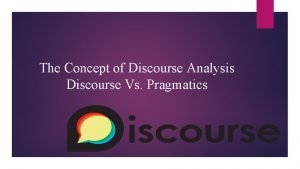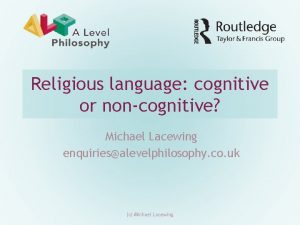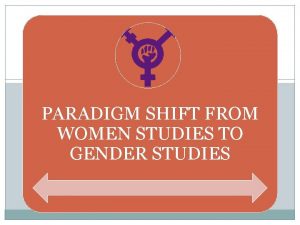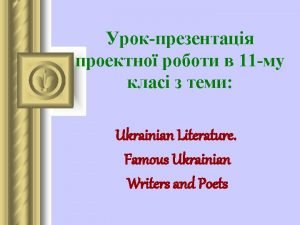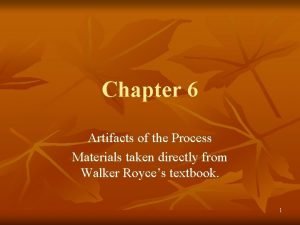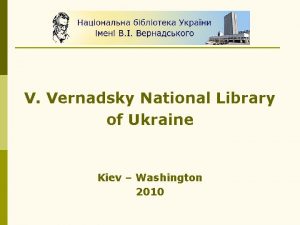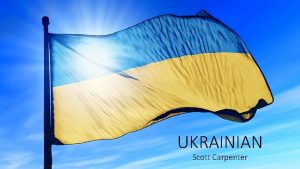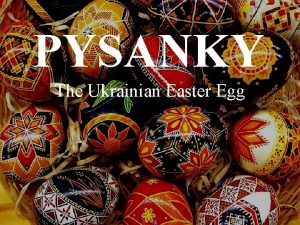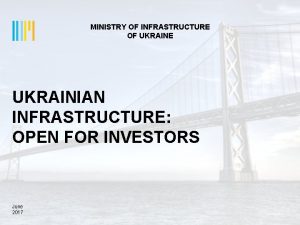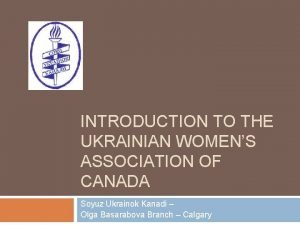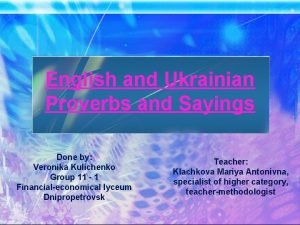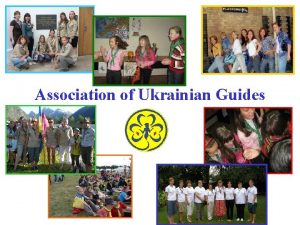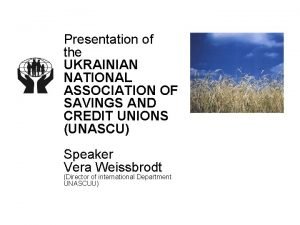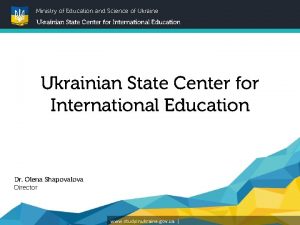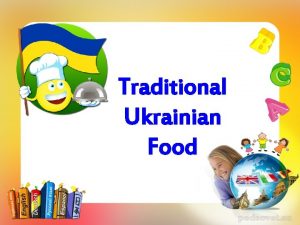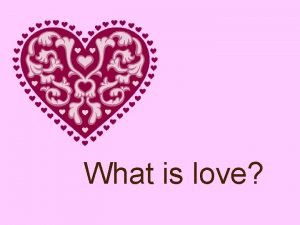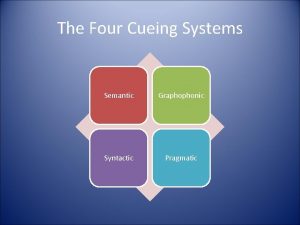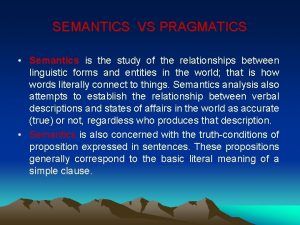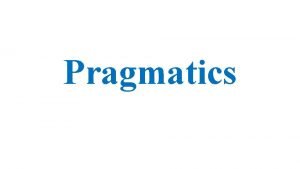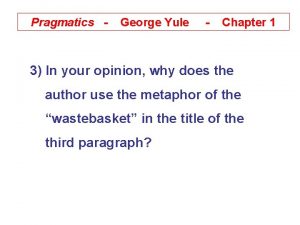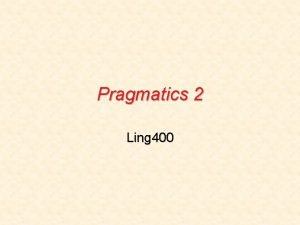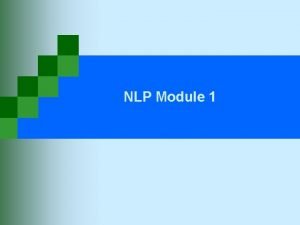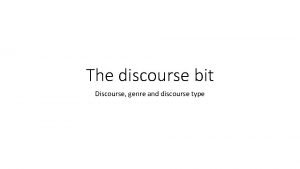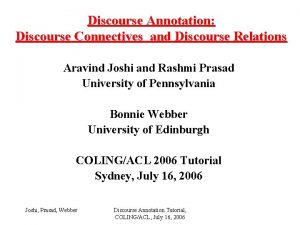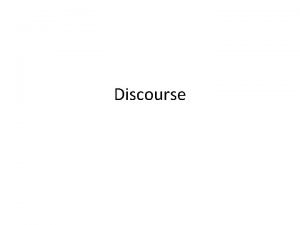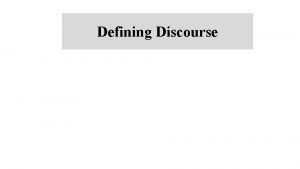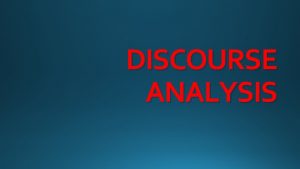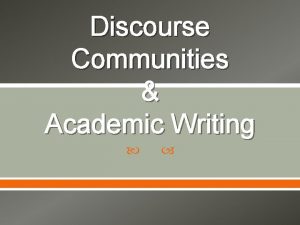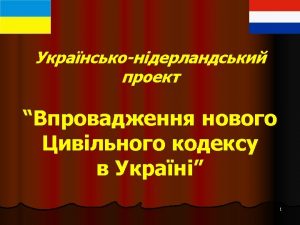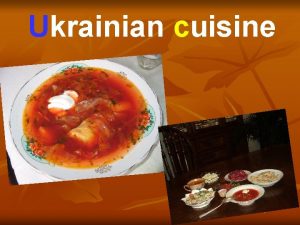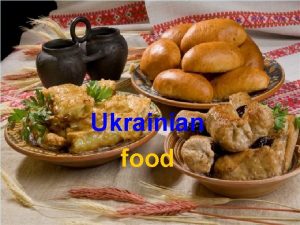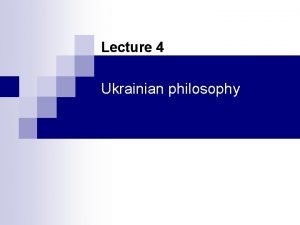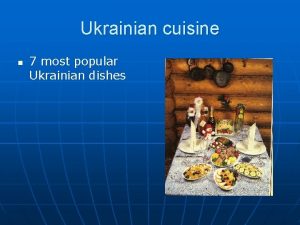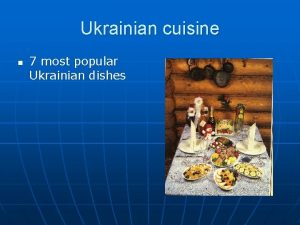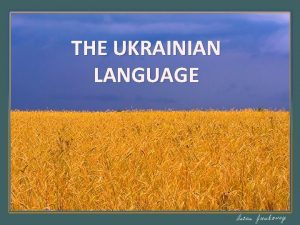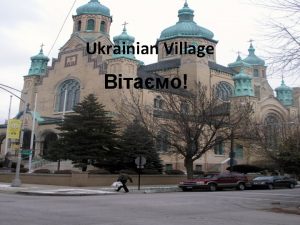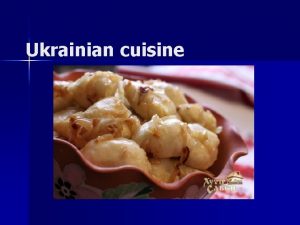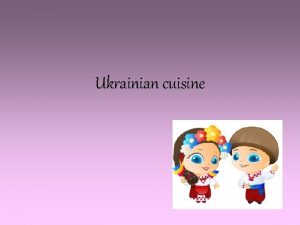Ukrainian school of discourse studies Cognitive and pragmatic

























- Slides: 25

Ukrainian school of discourse studies


Cognitive and pragmatic aspect of discourse research (I. Shevchenko, L. Bezugla, Kharkiv). The interactive nature of discourse. Discourse as a cognitive and communicative event (O. Morozova, Kharkiv) Discourse as a sociolinguistic phenomenon (K. Serazhim, Kyiv). A cognitive map of discourse analysis (O. Selivanova, Cherkasy) Poetical discourse analysis (L. Belechova, Kherson) Political leader’s discourse of reflection in linguistic and cognitive perspective (based on historic memoir works of W. Churchill) (N. Bazylevych, Kherson)

Some definitions of discourse

A. Zahnitko: "1) a speech-thinking process that reproduces and forms complex linguistic structures, components of which are utterances and groups of utterances related to discursive operations; 2) the most complex linguistic structure that exceeds the volume of the sentence »


F. Batsevich: “Discourse is a type of communicative activity, an interactive phenomenon, a timeconsuming process, embodied in a certain (sometimes significant) number of messages; speech flow, which has various forms of expression (oral, written, printed, paralingual, etc. ), occurs within one or more channels of communication, is regulated by the strategies and tactics of participants of communication and is a complex synthesis of cognitive, linguistic and extralinguistic (social, psychic, psychological, etc. ) factors that are determined by a specific circle of "life forms" depending on the topic of communication "


O. Selivanova discourse = text; discourse = text + situation; discourse = (oral) speech; discourse = type of discursive practice.

Discourse Typology



K. Serazhym (К. Серажим) practical discourses "actualized in а certain historical, ideological and communicative situations" distinguishes: personal and institutional practical discourses. situation-conditioned and situationfree (independent) Серажим К. Дискурс як соціолінгвальне явище : методологія, архітектоніка, варіативність (на матеріалах сучасної газетної публіцистики) / К. Серажим. – К. : [б. в. ], 2002. – 392 с.

I. Shevchenko and O. Morozova give the following criteria for discourse taxonomy (taxonomy is elucidation of the parameters classifying discourses into types): 1) according to the form (oral and written); 2) according to the type of communication (monologic(al) or dialogic(al); 3) according to the addressee (institutional and personal); 4) according to the communicative principles (argumentative, conflicting and harmonious);

5. according to the socio and situational parameter (political, administrative, legal, military, religious, medical, business, advertising, pedagogical, sport, scientific, electronic (internet discourse), media discourse etc);

6) according to the various characteristics the addresser and the addressee: the socio-demographic criterion (children’s, teenager’s and older people's discourses, female and male discourse, discourse of the city and village residents); socio-professional criterion: discourse of sailors, builders, miners; the socio-political criterion (discourse of communists, democrats);

7) according to the functional and informative components: communication informative (emotional, evaluative, directive discourses) and phatic; Phatic communication is verbal or non-verbal communication that has a social function, such as to start a conversation, greet someone, or say goodbye, rather than an informative function.

8) according to the criterion of formality and content in terms of functionality and style in accordance with genres of speech (за критерієм формальності та змістовності у функційно-стильовому аспекті відповідно до жанрів мовлення) artistic, nonfiction, scientific and others, official and unofficial


The basic principles of discourse classification are usually its categorial features. The broadest typology is offered by F. Batsevych. His typology is based on the interpretation of discourse as an interactive phenomenon.

His classification criteria include: the referential and thematic aspects of the message, the communication channel, the relationship between the addresser and the addressee, the identification of interpersonal relationships, functional and pragmatic effect, the identity of the addresser and the addressee


According to the referential aspects Batsevych distinguishes the following types of discourses: framing (фреймінгові) which reflect the phenomena of the objective (real) world in words and concepts; Referential aspects refer to how the phenomenon relates to its surroundings, its global aspect.

reframing (рефреймінгові) which display the marked phenomena beyond words and concepts) , (рефреймінгові , які виводять позначувані явища за межі слів і понять), Reframing (переосмислення) to reframe – to look at, present, or think of (beliefs, ideas, relationships, etc. ) in a new or different way.

 Pragmatics and discourse analysis
Pragmatics and discourse analysis Discourse in linguistics
Discourse in linguistics Cognitive and non cognitive religious language
Cognitive and non cognitive religious language Paradigm shift from women studies to gender studies
Paradigm shift from women studies to gender studies While ukrainian writers read poems kyiv
While ukrainian writers read poems kyiv Pragmatic artifacts in software project management
Pragmatic artifacts in software project management Vernadsky national library of ukraine
Vernadsky national library of ukraine Kyrillisches alphabet ukraine
Kyrillisches alphabet ukraine Ukrainian eggs history
Ukrainian eggs history Ministry of infrastructure ukraine
Ministry of infrastructure ukraine Ukrainian catholic catechism
Ukrainian catholic catechism Ukrainian women's association of canada
Ukrainian women's association of canada Ukranian sayings
Ukranian sayings Ukrainian farmers
Ukrainian farmers Association of ukrainian guides
Association of ukrainian guides Ukrainian national association
Ukrainian national association Ukrainian state center for international education
Ukrainian state center for international education Traditional ukraine food
Traditional ukraine food Famous ukrainian americans
Famous ukrainian americans What are different types of love
What are different types of love Graphophonic
Graphophonic Pragmatic definition in linguistics
Pragmatic definition in linguistics Examples of pragmatics
Examples of pragmatics Yule pragmatics
Yule pragmatics Presupposition in pragmatics examples
Presupposition in pragmatics examples Pragmatic definition in linguistics
Pragmatic definition in linguistics
